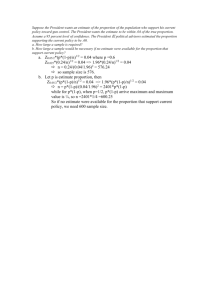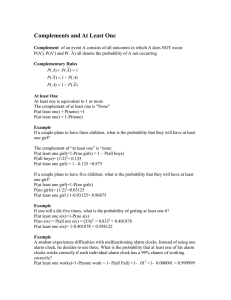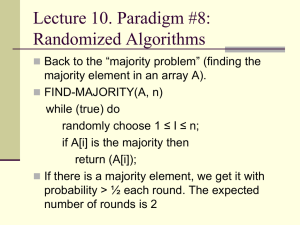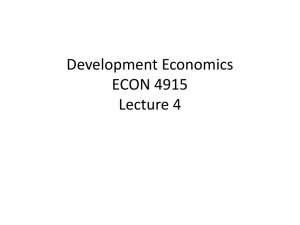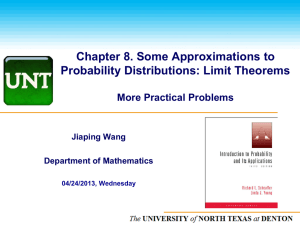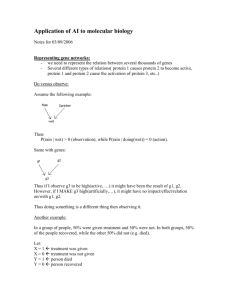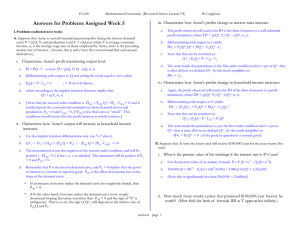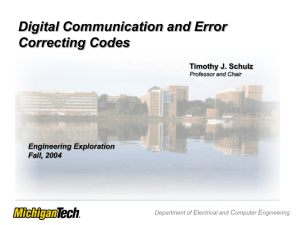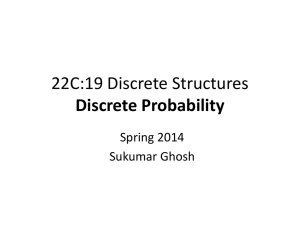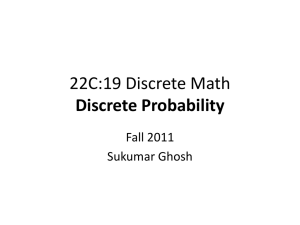Recursive Noisy
advertisement
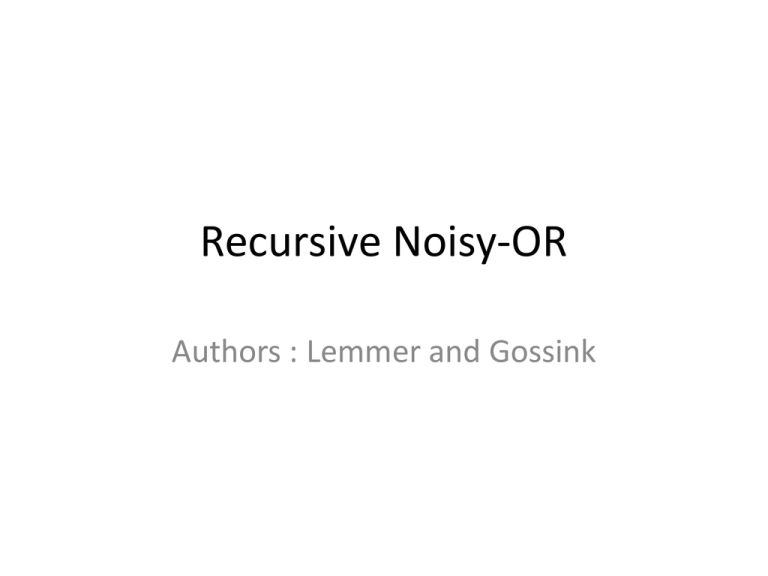
Recursive Noisy-OR
Authors : Lemmer and Gossink
Recursive Noisy-Or Model
• A technique which allows combinations of
dependent causes to be entered and used for
estimating the probability of an effect
• Proposed by Lemmer and Gossink extension
of basic Noisy-Or model.
• Claim that with this algorithm accurate Bayes
models can tractably be built
2
Continue…
• It solves knowledge acquisition as it requires n
parameters where n is the number of parent
nodes and m parameters where m denotes
the synergy/interference of two or more
parent nodes on the child node.
• Categorization of Dependent and Independent
causes
3
Formula
Where:
pR(x) conditional probability
pE(x) is the conditional probability provided for
dependent causes by an expert
4
Example
Let x={a,b,c} be three causes affecting B then if we assume the
following values of probabilities provided by expert then:
p(a)= 0.5
p(b)=0.6
p(c)=0.7
If the expert tells us that the two causes a and c are causally
dependent and provides us with the estimate of that
probability then
pR (a,c)=0.9
pR (a,b) = 1-(1-p(a)*(1-p(b))) = (1- 0.5*0.4) = 0.8
{a,b are independent}
5
pR (b,c) = 1-(1-p(b)*(1-p(c))) = (1-0.4*0.3) = 0.88
{b,c are independent}
Then to calculate pR(a,b,c) by RNOR model we use the
following formula:
pR(a,b,c) =1 - [(1- pR(a,b))(1- pR(b,c))(1- pR(a,c))] /
[(1- pR(a))* (1- pR(b))*(1- pR(c))]
= 0.96
6
Advantages of RNOR
• It preserves Synergy that is the effect of combination
of these causes is greater than the combined
independent product.
• It preserves Interference that is the combination of
these causes is less than the combined independent
product.
• Estimates of probability are appropriate as compared
to simple Noisy-Or model
Comparative study of Knowledge Elicitation
Techniques in Bayesian Networks
7
Limitations
• It cannot handle Inhibition that is when one
cause adversely effects the other cause and its
combined probability is less than the
minimum probability of either of them
• Potential problem with RNOR is that its
computation can become undefined if
denominator is equal to one
8
